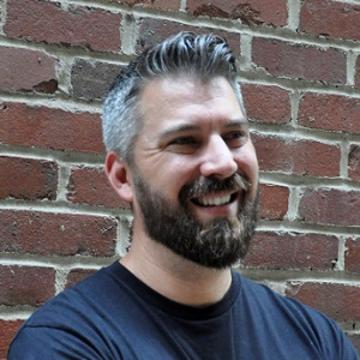Montana Butsch, founder of Spotivity

Montana Butsch is the founder of Spotivity, a double-sided marketplace that not only supports after school programs to increase enrolment and participation rates but also enables kids and their parents to make the best decisions about how to use time outside of school hours. Spotivity removes key logistical barriers to entry and promotes positive networking opportunities while providing a platform for marketers to engage with a key demographic market. This self-sustainable dynamic app will ultimately evolve into a lifestyle/social tool and grow in importance as the user ages. Spotivity is currently in the growth stage of startup cycle.
What is your background? What made you decide to become an entrepreneur?
Prior to Spotivity, I was the founder and CEO of major sports non-profit organization (Chicago Training Center) which has served thousands of inner city children in Chicago and who has formed extensive ties with Chicago business, philanthropy and government leaders.
Spotivity aims to change the way teens live, work, and play by giving them easy access to opportunities that directly address their interests, strengths/weaknesses, and life goals. If you have ever used Open Table for dinner reservations – the process comparison between us is similar. Our app provides opportunities that result in a clear pathway for all teens to become productive young adults. Our technology, University informed research, and razor sharp focus on access results in Spotivity ultimately becoming a personal guidance assistant platform – a user’s personal “genie”.
Spotivity was created out of my running interest with the betterment of teenagers. Early on I was a youth volunteer to local causes, that ultimately led to a role as a part time teacher post Oxford University (where I was also a part of the Boat race squad 2003 and 2004), and these experiences led to my first professional venture – the founding of the largest fully free competitive year-long rowing team for inner city kids in America. All of this resulted in my idea and ultimate rollout of Spotivity. But my background aside, the focus of Spotivity could not be more timely. In an environment of hyper partisanship, national populism, and global access – the ability to meaningfully access opportunities is sadly not universal. We will change that. The vision for Spotivity is grand, audacious, and global.
As for when I decided to be an entrepreneur – that is all I have ever known and how I am wired. Know nothing else.

My personal definition of entrepreneurship is engaging in a process to back yourself in an idea that solves a difficult problem in a new or novel manner.
How and when did you know your idea was good enough to develop it?
In 2009 when I was part of the Chicago Olympic bid process and I was part of think group to address access issues. The seeds of spotivity were sown in my brain then – I just needed to roll off Chicago Training Center (which had just begun) and go to Business School before I felt ready to pursue it. Between that date and our spotivity launch I was continually thinking of how spotivity would look, feel, and act – and create a game plan for the eventual execution.
What would you say are the top 3 skills that needed to be a successful entrepreneur? Why?
1. Self belief. If you can’t back yourself what is the point of pursuing the plan?
2. Self confidence. You need to trust yourself to make good decisions – even if that decision is to delegate decision making to others.
3. Humility. You won’t be right all the time – or even most of the time. But knowing this allows you to learn from those experiences and get better. Humility is the tool that allows this to happen with the least amount of friction possible.
What is your favourite part of being an entrepreneur?
Being engaged in solving a problem that matters.
What individual, company or organization inspires you most? Why?
I read Richard Branson’s “Losing my Virginity” just after high school and I found his story to be very motivating. At the time, I had a huge interest in music (ultimately. I was a radio DJ while at Oxford) so that angle of his story was the most impactful to me then. However, as I grew up and experienced more, the underlying tenets of how he pursed passions thoughtfully and fully has become a defining characteristic of mine. Many of my attitudes towards next step planning were forged by my thoughts on that book and Richard’s life story.
If you had 5 minutes with the above individual/ company/organization, what would you want to ask or discuss?
I’d like to discuss with Richard (preferably over a pint in the Turf) about how we could systematically and positively impact large groups of young people across the world through the lens of access.
What has been your most satisfying or successful moment in business?
A teenager telling me that they found jobs to apply to using the app. Mission accomplished!
What would you say have been some of your mistakes, failures or lessons learned as an entrepreneur?
The common mistake of an entrepreneur – and a failing of mine – is the personal thought that others would care about your cause as much as you do. I’ve found that this is never the case. But, I have also learned that that is an unrealistic expectation to have anyway. An entrepreneur is by nature unreasonable so the goal of that individual should be to translate a vision in manner that is befitting of the one receiving the message. Using puns to explain a point: there are many ways to ‘skin the cat’ and you also need to know that you cannot ‘un-ring the bell’ – so I have learned that a lot of time is needed to find out a way to translate your own vision into one that speaks to the target audience in a manner that they can embrace and own. At the end of the day – it is not the message that truly matters; it is what results from the action created that does.
How have you funded your ideas?
My non-profit Chicago Training Center was funded via grants, state sponsored programs, private donations, and an annual Gala event. Spotivity is funded via seed investors and we just closed our initial $500k round. These investors support me based off the work I had done previously with CTC.
Are there any sector-specific awards/grants/competitions that have helped you?
spotivity became a Founder Institute portfolio company and that has provided key validation. Beyond that, we have been featured in quite a few media outlets for our efforts.
What is good about being an entrepreneur in Oxfordshire? Bad?
The connections that come from the network are invaluable and last with you your entire career / life.
If a new entrepreneur or startup came to you looking for entrepreneurship resources, where would you send them?
I would advise them to look at their local incubator resources – in Oxford that would be the Oxford Foundry, SAID Business School, Oxford Entrepreneurs, Oxford University Innovation and Enterprising Oxford along with other labs that I might not know about. A key early learning for all entrepreneurs is that you don’t know what you don’t know. So use your initial few months filling those gaps. Centers like these are teaming with people that can help gap fill – and really help you along your entrepreneurship journey.
Any last words of advice?
A quote from a recent interview I sat for:
“Starting your own venture is hard. Like really hard. But it is also fun and very rewarding. You need to understand that few, if any, will pour as much into your startup as you do. So the trick for any entrepreneur is to set realistic and achievable goals for others so that they can be a value-add to your work process rather than a hindrance to growth. Managing the complexities of uncertainty is a key overriding characteristic of the successful entrepreneur, so better get used to that early on in your process.”
This seems to wrap it up well.
Share this
More news



